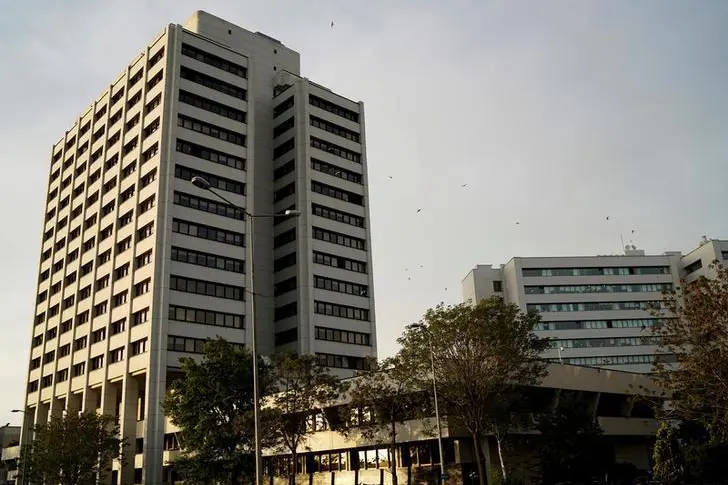PHOTO
ISTANBUL - Turkey's central bank held its policy rate at 14% for a seventh straight month as expected on Thursday, despite inflation surging to near 80% and a global tightening cycle, and it repeated that disinflation was expected to begin.
In a new section of its statement, the monetary policy committee said high energy prices and recession risks in trade partners could harm Turkey's current account balance, even as tourist receipts are providing a boost.
The bank - which is pursuing very easy policy despite the extreme price rises - also said it was closely monitoring a drop in credit growth and added that job creation in Turkey has proven stronger than in peer economies.
"Despite losing momentum, credit growth, and allocation of funds for real economic activity purposes are closely monitored," it said.
The committee repeated it "expects disinflation process to start on the back of measures taken" and also owing to "the resolution of the ongoing regional conflict" - though it dropped a reference made last month to so-called base effects.
The central bank cut its main interest rate by 500 basis points toward the end of last year, even though prices were already rising, in an unorthodox policy advocated by President Tayyip Erdogan that has left real rates deeply negative.
The monetary easing triggered a currency crisis that eroded 44% of the lira's value against the dollar in 2021, stoking inflation further. The lira has weakened another 25% this year while inflation has hit a 24-year high of 78.62%.
The lira was little changed after the policy decision at 17.671 versus the dollar at 1132 GMT, slightly weaker on the day.
"Same old, same old. Turkish rate policy makes no sense," said Ipek Ozkardeskaya, senior analyst at Swissquote Bank.
In a Reuters poll, all 18 economists expected the benchmark one-week repo rate to remain unchanged as the central bank follows Erdogan's economic programme of targeted cheap credit meant to boost exports and production, and to ease the trade deficit.
The current account deficit widened to $6.47 billion in May, and was $14.89 billion last year, largely due to the currency crash and soaring energy import bills.
Most economists polled expect rates to remain steady at least for another year.
(Additional reporting by Tuvan Gumrukcu; Editing by Jonathan Spicer)





















